**Some posts on the Wolterman Homestead contain affiliate links. When you make a purchase through an affiliate link, your price will be the same, but the Wolterman Homestead will receive a small commission. Thank you for your support!**
In the hustle and bustle of modern life, it’s easy to forget the timeless practices that have nourished families for generations. One such practice is food preservation, an art that goes beyond simply storing food—it is an act of stewardship and gratitude for the blessings we receive. Enter Canuary: a challenge that combines the age-old tradition of canning with the principles of sustainability and stewardship found in the Bible. This January, take part in Canuary to learn how to can and preserve food, all while grounding your efforts in biblical wisdom.
What is Canuary?
Canuary is a month-long initiative designed to encourage individuals to explore the art of canning and food preservation. A fusion of “canning” and “January,” this challenge invites participants to learn how to preserve seasonal produce, from fruits and vegetables to jams, pickles, and more. It’s an opportunity to slow down, practice gratitude for the earth’s abundance, and develop practical skills that honor both our food and our faith.
Through the Canuary challenge, we can embrace the wisdom of canning as not just a practical skill, but as an expression of faith and responsibility. This challenge calls us to reflect on the biblical principles of stewardship, community, and provision while learning how to preserve God’s gifts for the future.
A Biblical Foundation for Canning
1. Stewardship of the Earth
One of the core principles in the Bible is the idea of stewardship—caring for the earth and the resources God has entrusted to us. In Genesis 2:15, we read, “The Lord God took the man and put him in the Garden of Eden to work it and take care of it.” This verse reminds us that we are stewards of God’s creation, tasked with tending to and protecting the earth’s abundance.
Canning is a practical way of living out this stewardship. By preserving food, we ensure that it is used wisely and not wasted. This aligns with God’s command for us to manage His resources responsibly. Canning allows us to enjoy seasonal produce year-round, reducing food waste and preventing the overconsumption of resources. In this way, we act as caretakers of the land, honoring God’s creation through careful and intentional preservation.
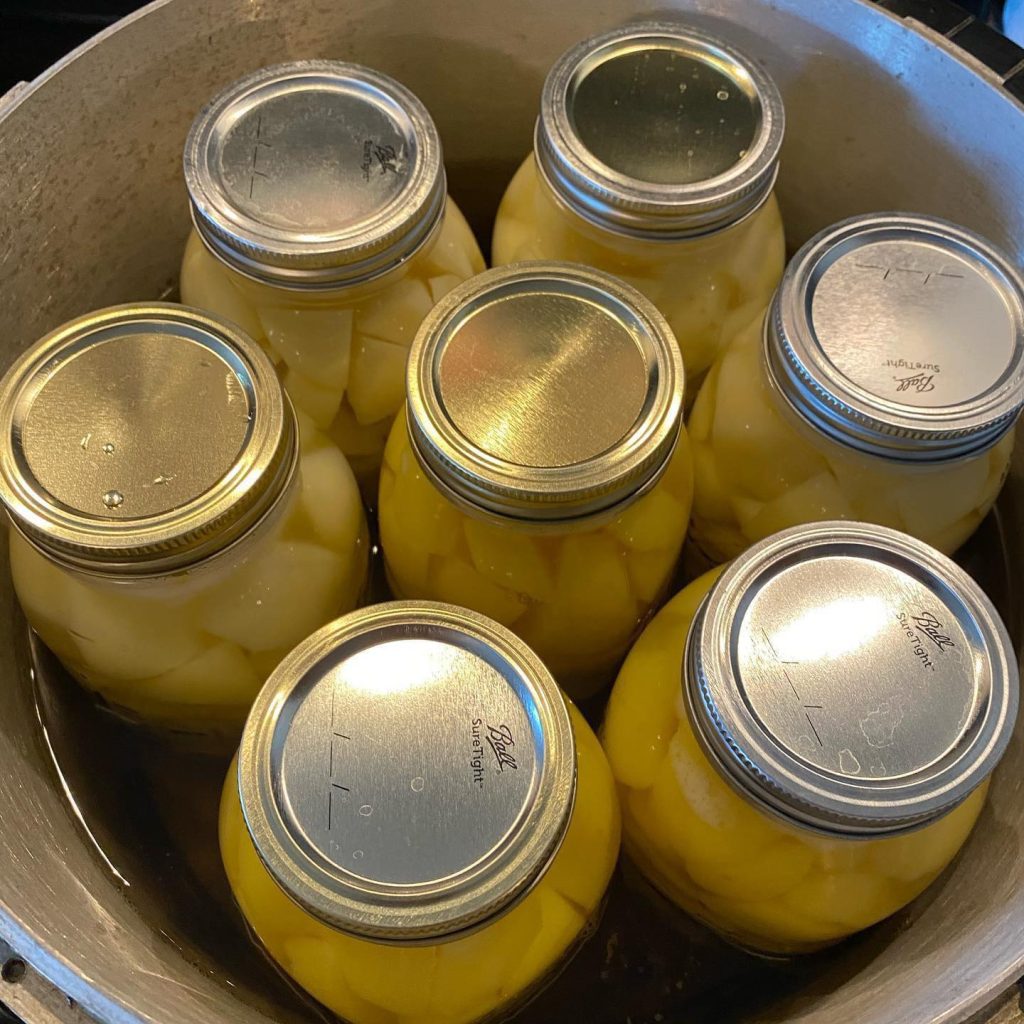
2. Gratitude and Provision
The Bible is full of reminders of God’s provision, from the manna in the wilderness to the abundant harvests promised to the faithful. In Psalm 107:9, it says, “For he satisfies the thirsty and fills the hungry with good things.” When we engage in canning, we are acknowledging the abundance that God has provided, while also preparing for times when food may not be as readily available. It’s an act of gratitude, recognizing that every jar we fill with fruit, vegetables, or preserves is a gift from God.
By canning, we are not just preparing food for the future; we are also practicing contentment and trust in God’s provision. As Philippians 4:19 reminds us, “And my God will meet all your needs according to the riches of his glory in Christ Jesus.” The act of preserving food can serve as a daily reminder of God’s faithfulness to provide for us.
3. Community and Sharing
Canning has always been a communal activity. In biblical times, families and communities would gather to harvest, prepare, and preserve food together. This spirit of cooperation is echoed in the teachings of the New Testament, where believers are encouraged to share with one another and bear each other’s burdens. In Acts 2:44-45, we read, “All the believers were together and had everything in common. They sold property and possessions to give to anyone who had need.”
Through Canuary, participants can reconnect with this biblical tradition of sharing and supporting one another. Canning isn’t just about filling your own pantry; it’s about providing for others in times of need. When you preserve food, you create opportunities to bless others with homemade gifts or donations to those who are struggling. As you learn to can, you may be inspired to make extra jars of jam or pickles for a neighbor, or share the fruits of your labor with your church or community group.
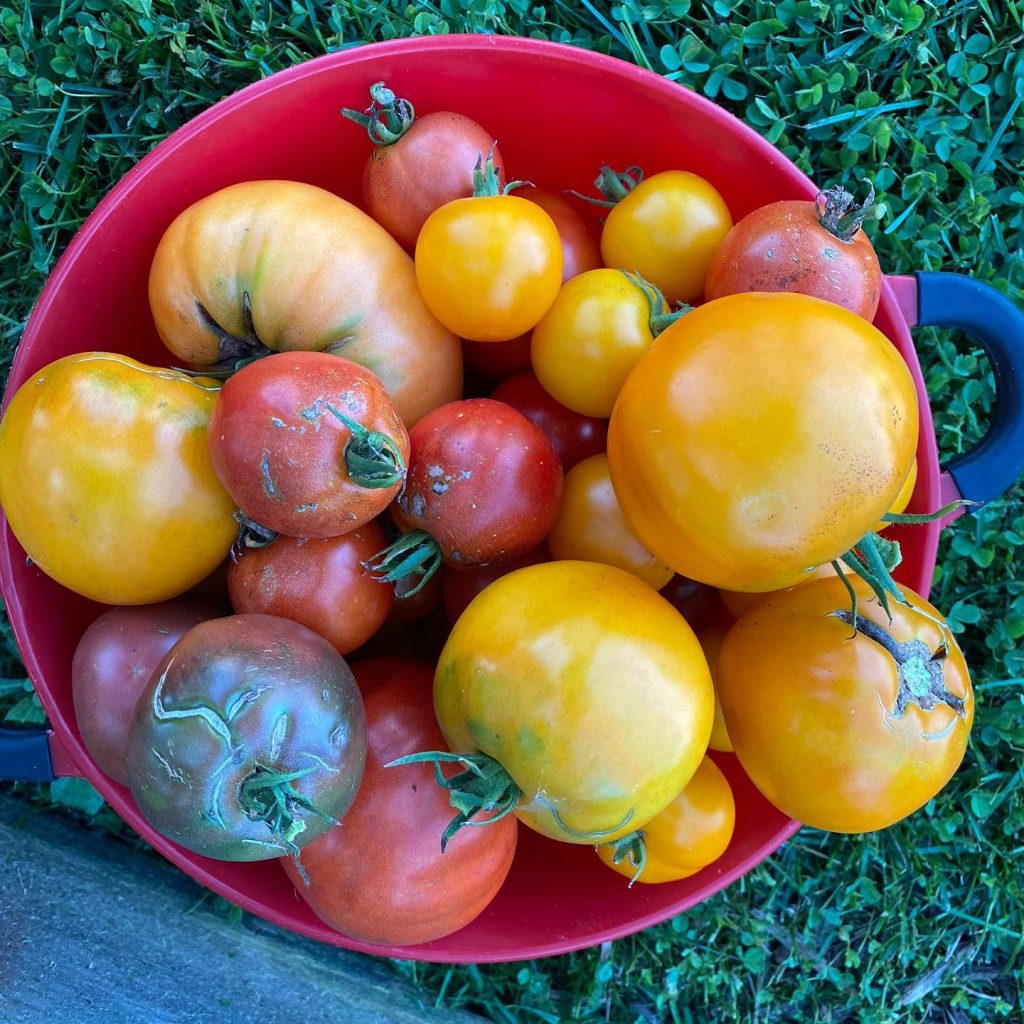
4. The Rhythm of Seasons
The Bible teaches us to honor the rhythms of the earth and to live in harmony with the seasons. Ecclesiastes 3:1 states, “There is a time for everything, and a season for every activity under the heavens.” Canning allows us to follow these natural rhythms, capturing the best of what each season has to offer and preparing for leaner times.
In the Old Testament, the Israelites were commanded to celebrate the harvest through feasts and offerings, as seen in the Feast of Harvest (Exodus 23:16). These seasons of gathering remind us of God’s timing and His abundant provision. Canning during Canuary aligns with this biblical principle, enabling us to store up food at the peak of its season and honor God’s cycles of nature.
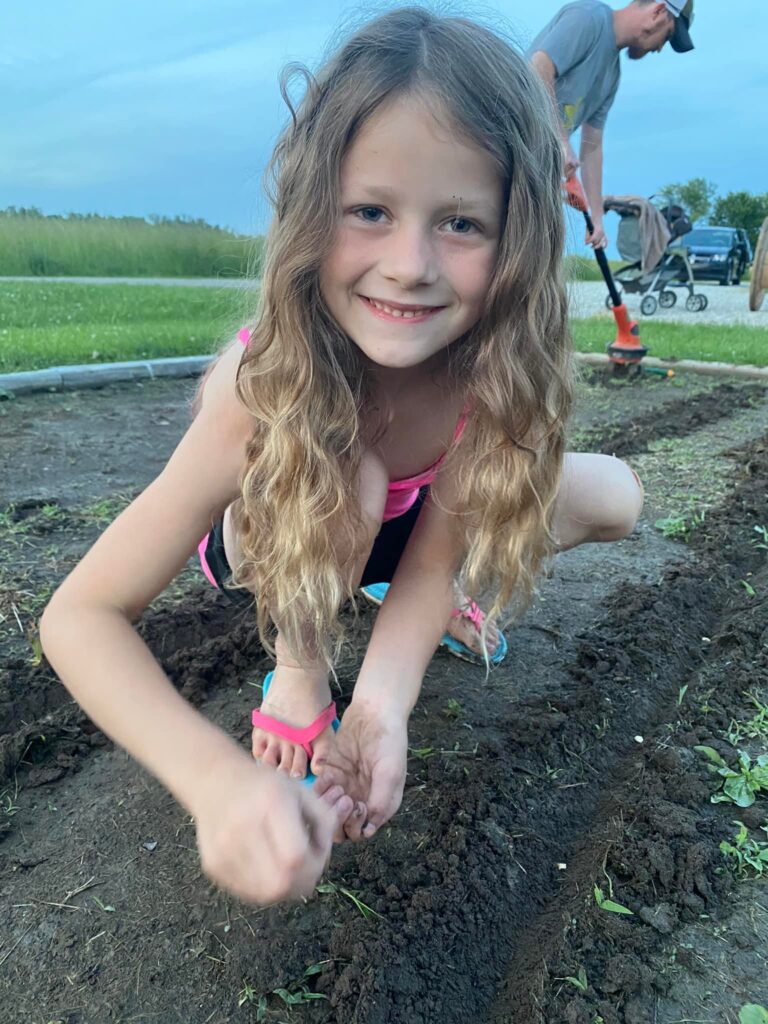
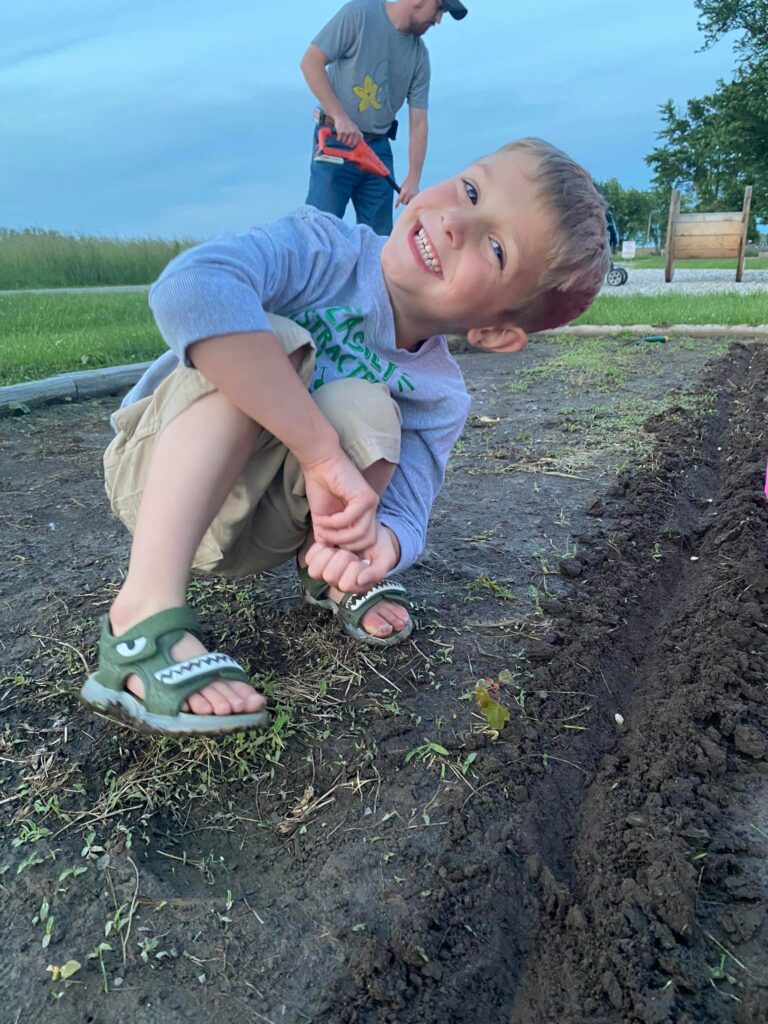

How to Get Started with Canuary: A Biblically Grounded Approach
If you’re ready to take part in Canuary and begin preserving food with a biblical foundation, here are some simple steps to get started:
1. Prepare Your Heart and Mind
Before you begin canning, take time to reflect on the biblical principles of stewardship and gratitude. Pray for wisdom and guidance as you embark on this journey, and ask God to bless your efforts. Canning is not just about the process—it’s about honoring God through your actions and acknowledging His provision in your life.
2. Gather Your Supplies
To start canning, you’ll need basic supplies:
- Canning jars (Mason jars are most commonly used)
- Lids and bands
- A large pot or water bath canner
- Jar lifter and funnel (for safety and ease)
- Fresh produce—look for what’s in season, such as tomatoes, berries, cucumbers, or apples.
3. Choose Simple, Biblical Recipes
Look for canning recipes that reflect the seasonal bounty, such as fruit preserves, pickles, or relishes. Many biblical foods like figs, olives, and grapes can be preserved, and they often have significant cultural and spiritual importance. Try preserving figs or making pomegranate jelly as a nod to biblical fruits.
4. Make it a Family or Community Event
Canning is an excellent opportunity to bring together your family or community, much like the gatherings described in Acts. Invite friends over to help, share recipes, and enjoy fellowship while you work together. This reflects the biblical value of community and sharing.
4-Week Canning Challenge for January
Week 1: Fruits & Jams
Focus: Start your canning journey with sweet, fruity preserves. This week is all about capturing the flavors of winter fruits and creating jams, jellies, and butters.
- Fruits to Can: Strawberries, blueberries, peaches, cranberries, apples, and plums.
- Recipes to Try:
- Strawberry Jam
- Blueberry Preserves
- Apple Butter
- Cranberry Sauce
- Peach Jam
- Mixed Fruit Jam
- Plum Jelly
This week will teach you how to preserve the flavors of fruit with sugar and pectin, creating delicious spreads, sauces, and more.
Week 2: Vegetables & Pickles
Focus: Pickling is one of the oldest food preservation methods. This week, you’ll explore tangy pickles and preserving vegetables for long-term storage.
- Vegetables to Can: Cucumbers, carrots, beets, onions, green beans, and peppers.
- Recipes to Try:
- Dill Pickles
- Bread and Butter Pickles
- Pickled Carrots
- Pickled Beets
- Sweet Pickled Onions
- Spicy Pickled Peppers
- Canned Green Beans
By the end of the week, you’ll be able to create crisp, tangy pickles and preserve fresh vegetables that will last for months.
Week 3: Meats & Broths
Focus: Learn how to can meats and broths to stock your pantry with protein-rich options that can be used in soups, stews, and more.
- Meats to Can: Chicken, beef, turkey sausage, and ground meats.
- Broths to Can: Chicken Broth, Beef Broth, Vegetable Broth.
- Recipes to Try:
- Canned Chicken
- Canned Beef Stew
- Homemade Chicken Broth
- Beef Broth
- Canned Chili
- Canned Sausages
This week will teach you how to preserve meats and broths, creating easy-to-use, ready-made meals for busy days.
Week 4: Salsas, Sauces & Relishes
Focus: The final week focuses on flavorful salsas, sauces, and relishes—perfect for spicing up your meals or adding depth to your cooking.
- Fruits & Vegetables to Use: Tomatoes, peppers, onions, corn, and garlic.
- Recipes to Try:
- Tomato Salsa
- Corn Salsa
- Green Tomato Relish
- Spicy BBQ Sauce
- Hot Sauce
- Marinara Sauce
- Zucchini Relish
By the end of this 4-week Canuary challenge, you’ll have an impressive collection of homemade preserves, including jams, pickles, meats, broths, and sauces. Not only will you have stocked your pantry with delicious, homemade food, but you’ll also have gained valuable canning skills that will last a lifetime. Enjoy the process, and don’t forget to share your creations with family and friends!
Preserving God’s Gifts for the Future
Canuary isn’t just a challenge to learn how to can—it’s a challenge to embrace the deeper biblical meaning behind food preservation. It’s about honoring God’s provision, practicing stewardship, and fostering community. As you take part in this challenge, you’ll not only learn how to preserve food but also strengthen your connection to God’s abundance, His cycles of provision, and the community He’s called you to serve.
This January, as you fill jars with seasonal fruits and vegetables, remember that you are following a biblical tradition of stewardship, gratitude, and care. Embrace the rhythms of nature, trust in God’s provision, and share the blessings you receive with others.

“In everything give thanks, for this is what God wants from you who are united with the Messiah Yeshua.” – 1 Thessalonians 5:18
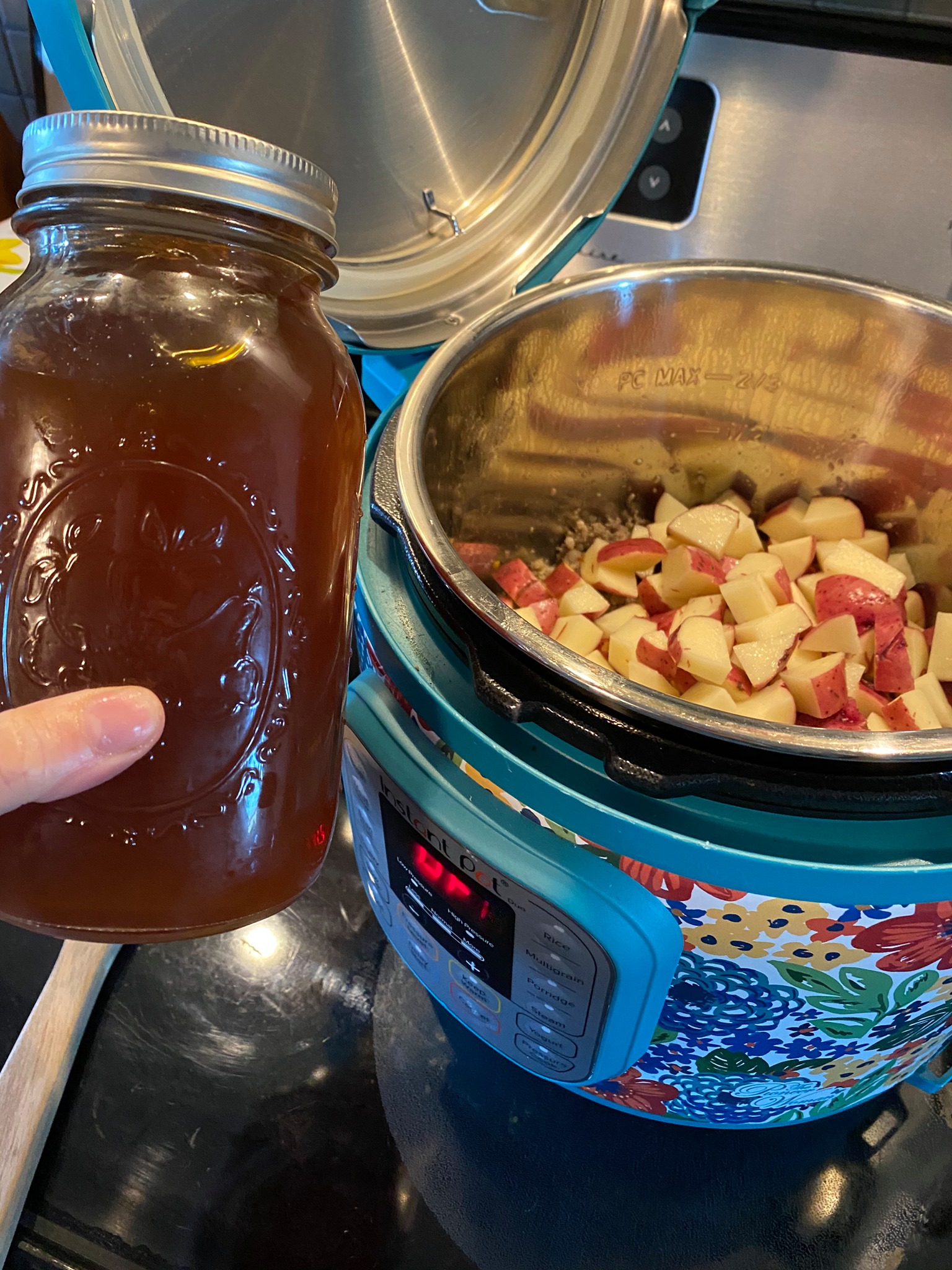
Leave a Reply